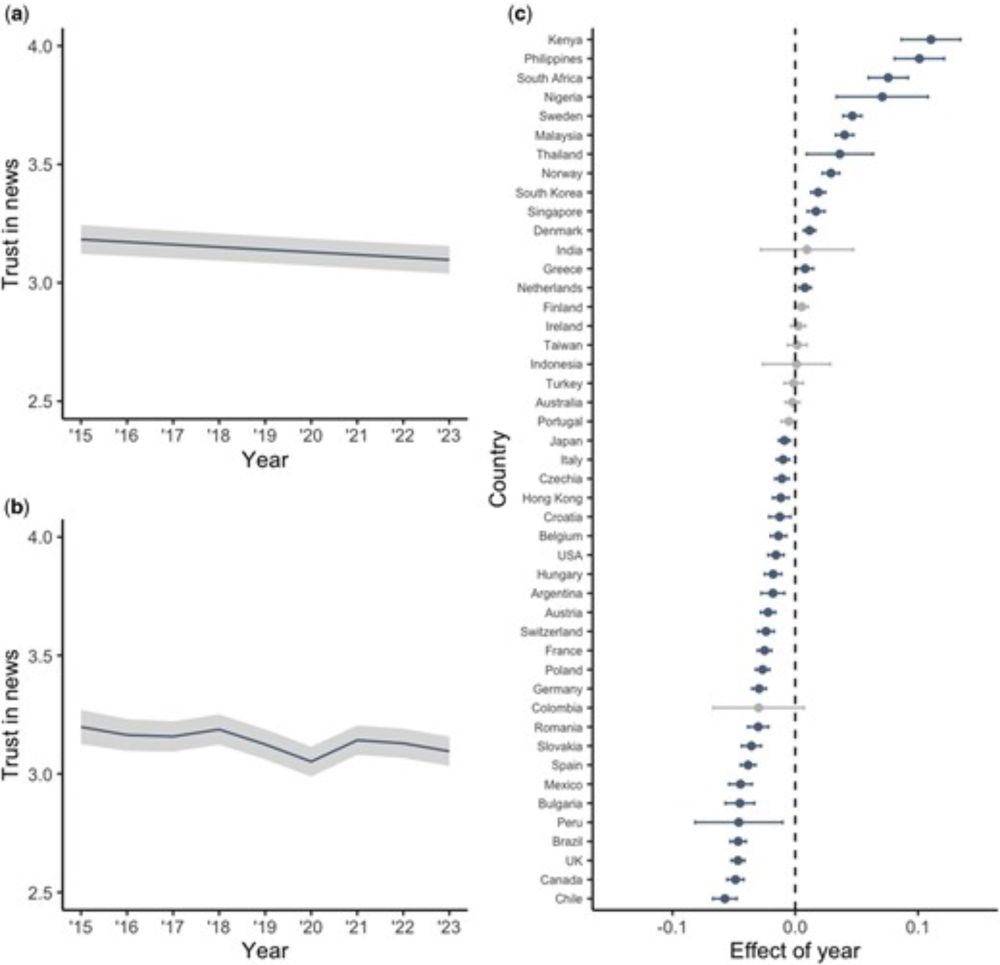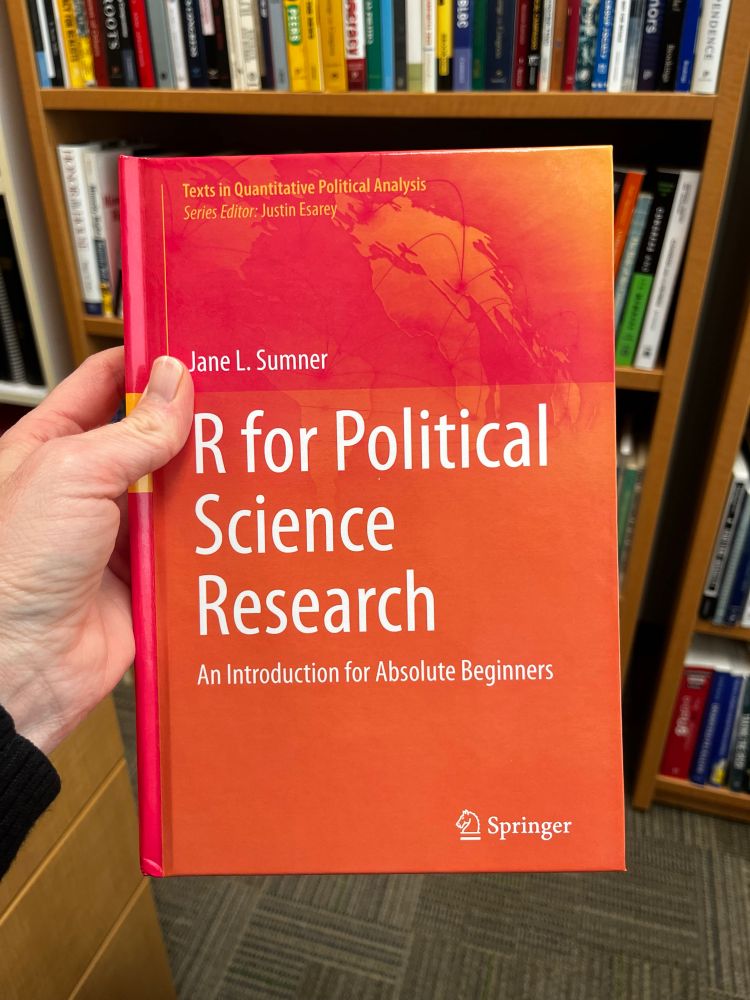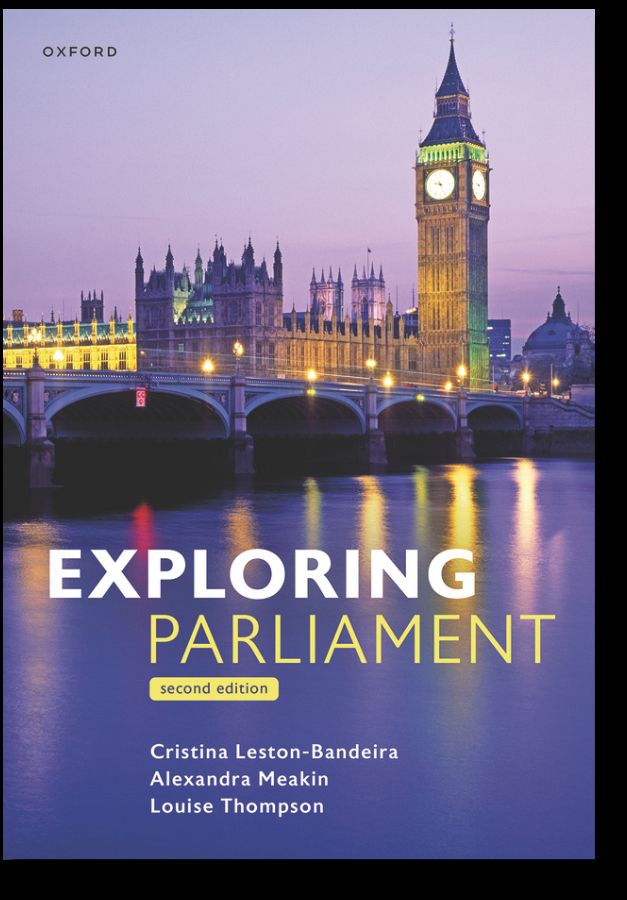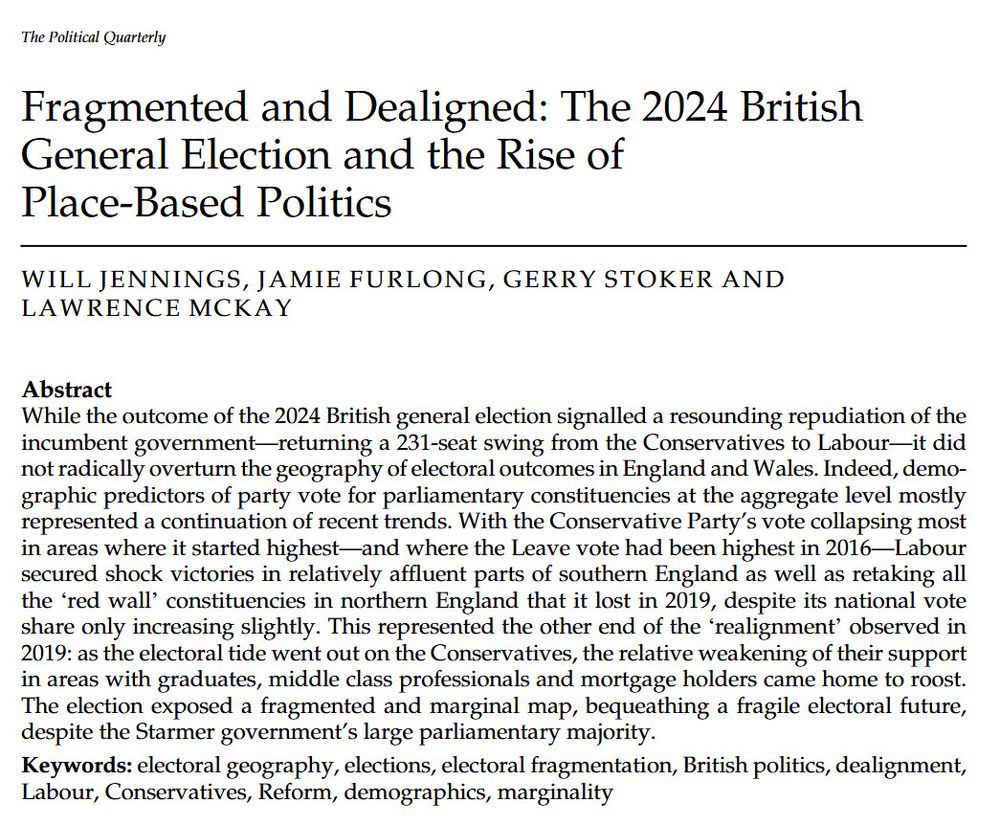Trust in news declined in just over half of countries.
It decreased more in countries where TV news use has declined, and/or where social media news use has grown.
A thread:

Reposted by: James Weinberg


www.jobs.ac.uk/job/DLU746/p...

Reposted by: James Weinberg, Nick Clarke

by Will Jennings — Reposted by: James Weinberg, Mark Tewdwr‐Jones, Richard Hayton
@politicalquarterly.bsky.social. This offers an important update of The Changing Electoral Map of England and Wales by @jwfurlong.bsky.social and me, published by OUP just ahead of the election. onlinelibrary.wiley.com/doi/10.1111/...

Reposted by: James Weinberg
Happy to chat with anyone who's interested.
www.jobs.ac.uk/job/DKT576/r...

If you'd like to know a bit more about what I do, then this talk in the Australian Parliament gives a good overview of some of my recent research on trust and political leadership (👇).
www.aph.gov.au/About_Parlia...
Thanks for connecting!
